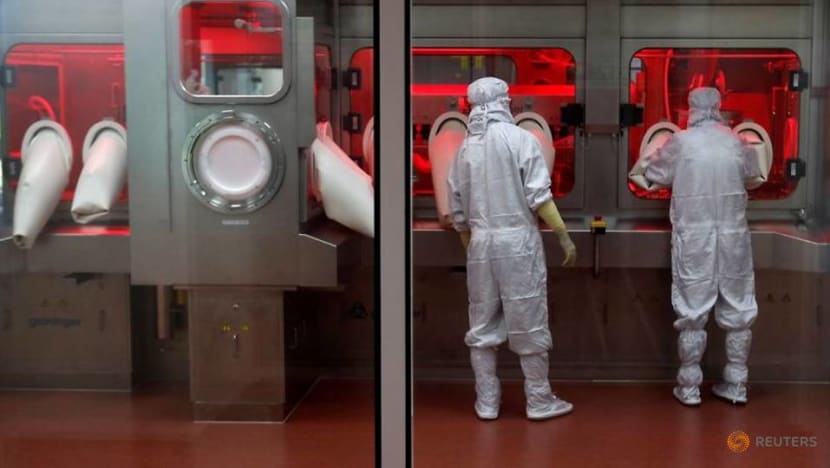World's biggest vaccine maker in India hopes to export COVID-19 shots by year-end

Employees operate a filling machine inside a lab at the Serum Institute of India, in Pune, India, Nov 30, 2020. (File photo: REUTERS/Francis Mascarenhas)
NEW DELHI: The world's largest vaccine maker said on Tuesday (May 18) it hopes to resume delivering COVID-19 jabs to COVAX and other countries by the end of this year, after India restricted exports to combat a massive rise in infections at home.
The Serum Institute of India (SII) has been producing hundreds of millions of doses of the AstraZeneca-Oxford vaccine, with many countries around the world, particularly poorer nations, relying heavily on the company for supplies.
But the Indian government put the brakes on vaccine exports as the nation of 1.3 billion people experienced a new wave of cases that has pushed the healthcare system to breaking point.
READ: COVID-19 vaccine tourism emerges in Thailand as demand grows
"In the past few days, there has been intense discussion on the decision of our government and Indian vaccine manufacturers including SII to export vaccines," Serum's chief executive, Adar Poonawalla, said in a statement.
He added that his company had already delivered more than 200 million doses.
"We continue to scale up manufacturing and prioritise India. We also hope to start delivering to COVAX and other countries by the end of this year," Poonawalla said.
India had exported nearly 66.4 million doses as donations, under commercial arrangements or via COVAX to more than 90 countries before exports were slowed more than a month ago.
The pause was a blow to vital vaccination programmes in poorer countries under the COVAX global inoculation initiative led by the World Health Organization and the GAVI alliance.
UNICEF said on Monday that rich countries could help bridge the shortfall in doses by sharing 20 per cent of their June, July and August stocks with the COVAX scheme.
BOOKMARK THIS: Our comprehensive coverage of the COVID-19 pandemic and its developments
Download our app or subscribe to our Telegram channel for the latest updates on the coronavirus outbreak: https://cna.asia/telegram










